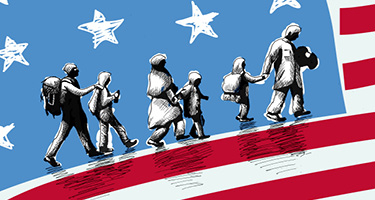It wasn’t long ago that if you were travelling and needed a place to stay because you could not rely upon friends or family for accommodation, a hotel was the preferred choice.
That changed with the advent of platforms that offer worldwide access to short-term rental units. The concept of renting out one's private residence is not new of course. People have long rented out their cottages on a short-term basis or leased their homes.
We now have platforms such as Airbnb offering almost limitless opportunities for travellers. For those who may not know, Airbnb started off quite humbly in 2007 when two roommates charged three guests $80 apiece to sleep on air mattresses in their San Francisco apartment. A friend joined them and the business that was first known as Air Bed and Breakfast enjoyed unprecedented growth. According to Forbes, Airbnb now has 4.5 million listings in 65,000 cities in 191 countries. At the beginning of June 2023, the company apparently had a net worth of more than US$73 billion.
The vast majority of short-term rental stays are fortunately incident-free, but of course accidents do occur. Do you know what to do if you have been seriously injured as a result of someone else’s possible negligence at a vacation property? The law can be complex and finding the answers that you need is not always easy. For that reason alone, you should seek legal advice before taking steps on your own or agreeing to a settlement following an accident that occurs while on a vacation rental property.
At Gluckstein Lawyers, we have more than 55 years of experience helping personal injury victims and their families. We will work diligently to ensure you are getting everything you need to help in your recovery.
Occupiers Liability Act.
The first thing to keep in mind is that Ontario has legislation called the Occupiers’ Liability Act (OLA). It applies to premises located within Ontario, including short-term rental properties. The Act provides that the owner or occupier of a property has a duty to ensure that persons entering the premises, or property brought onto the premises, are reasonably safe. The Act applies whether the danger is caused by the condition of the property or by an activity carried on there. The occupier does not necessarily have to be the owner. It is the person who is considered to have adequate control over the premises at the time of the injury. The OLA is not an insurance policy. However, it is a statutory basis to impose liability on the owner or occupier of the property if the standard of care is breached.
Is insurance offered?
E-hosting platforms such as Airbnb may have insurance coverage that protects hosts in the event of an accident. Airbnb, in fact, offers what is called AirCover, which offers US$3 million in protection for damage caused by guests to the property. The company also provides US$1 million in liability insurance in the event a guest is injured. It is important to keep in mind, however, that as with most insurance policies, the AirCover policy contains specified limitations and exclusions of coverage. As a host, it is important to understand those limitations and exclusions so as not to fall victim to them.
To read the full article, click here.
















